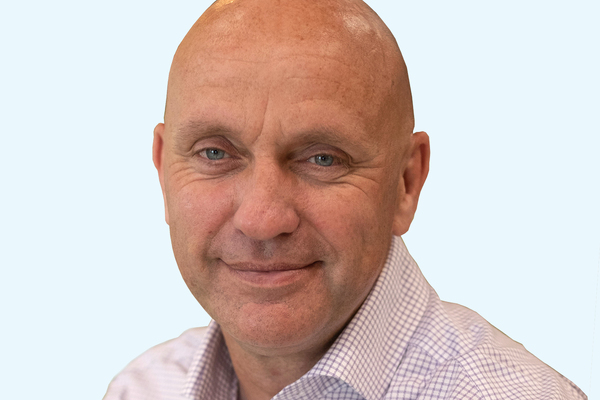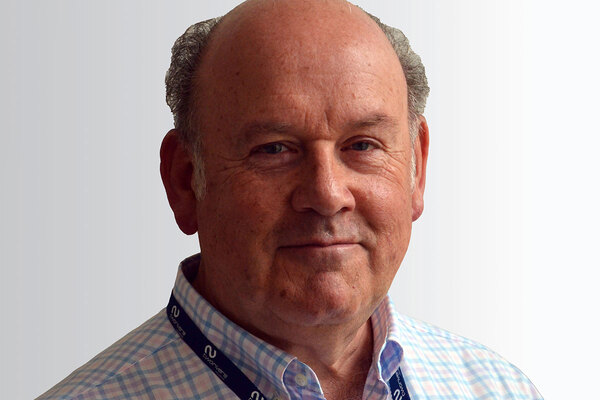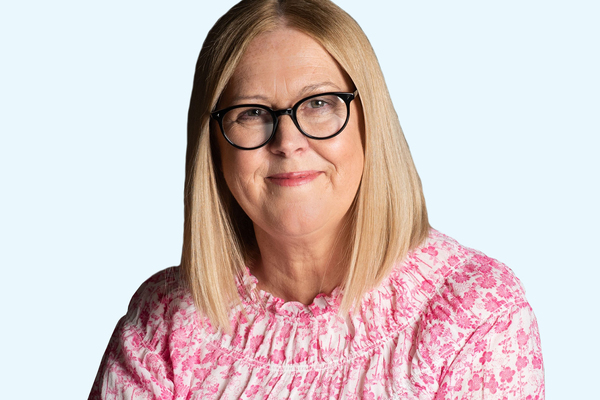You are viewing 1 of your 1 free articles
Meet the board
Housing associations are becoming ever more complicated organisations. But what skills and experience do they have on their boards? Jess McCabe looks into the resumes of 543 board members to find out in an exclusive survey
Video:
featsss

American president Harry Truman had a sign on his desk in the Oval Office, which read “The buck stops here”. For housing associations, the buck might seem to stop in the chief executive’s office, but ultimate responsibility actually ends in the board room.
Which makes one question vitally important: who is sitting around that table of board members?
The answer to this question has been growing in significance every year, as ‘the buck’ gets heavier and heavier. First there was co-regulation, and now we are entering an era of deregulation. Housing associations must be financially viable - not just to satisfy the Homes and Communities Agency, but to ensure that they survive a policy buffeting like never before.
Inside Housing wanted to know more, so earlier this year we sent a detailed survey to gather information from 100 housing associations on their leadership. The first part of that survey, which addressed diversity at executive and board level, was published earlier this year (Inside Housing diversity survey, 12 February 2016).
Now, we are taking another deep dive into the data provided by those 100 associations, to examine the skills, roles and professional background of 543 board members, in Inside Housing’s largest-ever such survey.
Video:
Ad slot
We found people from all walks of life. Board members range from former government ministers - Lord Falconer, chair of Amicus Horizon, was justice secretary under Tony Blair - to a dressmaker. They include captains of industry, alongside barristers, retired police officers and councillors. They include two farmers, an archaeologist and a business psychologist.
They also include tenants (see box), although discussion of tenants’ importance on boards has waned in comparison to years gone by.
Housing experts that Inside Housing spoke to all agree that governance of housing associations has improved significantly over time. Pat Brandum is an associate at consultancy Savills, as well as former chief executive of WM Housing Group. She recalls when she started in housing, “boards were made up of these self-fulfilling oligarchies”, largely drawn from within the organisation itself.
Utilising skills
Those days are long past, and the professionalisation of boards has sped up in recent years. “Governance standards have increased and will continue to increase,” as Gavin Smart, deputy chief executive of the Chartered
Institute of Housing (CIH), puts it.
“The best boards have a really good mix of people.” James Tickell, partners, Campbell Tickell.
Gaining the skills of a range of board members is clearly part of that. “The best boards have a really good mixture of people,” says James Tickell, a partner at consultancy Campbell Tickell. Certainly, our survey shows a very broad range of people sitting on boards.
Or, as Henry Gregg, assistant director of communications and campaigns at the National Housing Federation, says: “Housing associations are leading the way in tackling the housing crisis - and having brilliant board members is a fundamental part of that. To do this they need the diversity of experience that other sectors such as law, finance, health and others can bring to ensure that every housing association has the strongest possible governance and leadership.”
So what can the numbers tell us about the skills in board rooms? We have picked out the biggest trends in the professional backgrounds of board members below - the numbers do not add up to 100%, as many people didn’t fall into any one particular category.
In fact, no single professional background dominates the make-up of boards, which does seem to show that the sector is drawing from expertise across the community and the economy.
The largest single segment of board members - one in five of these non-executive board members - still comes from the housing sector (we have excluded from consideration in this survey executive board members, who come to the board because they are involved in running the housing association).

Another 5.6% of board members work in local authorities, including some in the housing department.
Opinions on this are mixed. Having some operational experience of the sector on the board can be an advantage. “I’m not surprised to hear that quite a significant proportion of board members have some experience of housing,” says Mr Smart from the CIH, pointing out that this kind of hands-on knowledge is useful.
In 2014, when Tesco announced a £250m accounting misstatement, the supermarket came under criticism for having no one at board level with retail experience. “Tesco’s recruitment policy for directors clearly doesn’t include the requirement for them to have any hands-on background in their specific industry at all,” one Financial Times columnist railed at the time.
“We do want people who will have some knowledge of the business at an organisational level,” Mr Smart notes.
“Diversity improves decision-making and encourages challenge.” Yvonne Atkinson, director, Board Development Agency.
But an over-dependence on board members from housing backgrounds on any single board may be a bad thing, experts agree, even if they bring with them lots of other skills.
“This may limit innovation and means executives are more likely to stay within their comfort zone. Diversity improves decision-making and [encourages] challenge,” says Yvonne Atkinson, director of the Board Development Agency, which runs training courses for social housing board members.
Financial skills are also much in evidence on boards, at various levels, perhaps brought in as the sector tries to become more commercial.
In the age of ‘value for money’ and the 1% annual rent cut, it is no surprise that boards court members with financial experience.
Just over 18% (or 98) board members come from a finance, investment or banking background, making this the second-biggest segment.
Of course, this includes a huge range of different types and depths of experiences. To take one example, Stuart Beevor sits on the board of 38,000-home Metropolitan. His previous experience includes managing and setting up several real estate funds. Obviously, this in itself is a different set of experiences compared to the 18 board members coming from an accountancy background.
Business brains
Business skills also feature strongly on boards, probably for the same reason. The next biggest segment of board members - 13%, or 73 individuals - came from the broad business world. Again, this seems to reflect the growing importance of bringing business skills into the governance of housing associations.
Added to this are 23 - or just over 4% - of the 543 board members who come from elsewhere in the property business, such as house builders, the private rented sector and developers.
We counted these separately from other business people, because of their specially related skills - undoubtedly of growing importance as some housing associations aim to enter into these areas themselves.
A smattering of board members, although not statistically significant, are from other professions within the property world - such as architects, engineers and chartered surveyors. Another 3.8% of board members come from a legal background - perhaps a surprisingly low number.
However, Mr Smart from the CIH points out that it’s not always just about the skills you have on the board, but also the advice that the board can access. “We want the right skills and experience and we want the right advice,” he notes.
“We don’t want cock-eyed optimists.” Alistair McIntosh, chief executive, Housing Quality Network.
By nature, our survey has simplified some board members’ experiences (particularly those with a portfolio career, who bring with them experience from several sectors of the economy).
Also, there can be pitfalls in just looking at broad categories. To give one example, on the people from the rest of the property sector appearing on housing association boards, Alistair McIntosh, chief executive of the Housing Quality Network, is particularly opinionated. “What we’re seeing is lots of organisations are really having to gear up on development,” he notes. “We definitely need people who either have good hands-on experience of development, or have got red-hot appraisal skills.”
But it’s not as simple as drawing any old person from the development world. “I think people who have recent experience of the property market, but have only been in the property market when it’s been on the up, are worse than useless on the board,” he says. “We don’t want cock-eyed optimists.”
So it’s a good start that housing association boards are coming from a diverse professional background, but it’s only that: a start.
A tenant voice on the board
Tenants make up nearly 15% of board members - or 158 out of 1,061 in our total housing leadership survey (this is a bigger sample than the rest of the statistics in this survey, as only about half of associations to respond gave detailed and usable information on the professional background of their board members - some could not supply this for the entire board).
However, some of these tenants will also be counted under other categories, as they bring to the board room other skills and experiences beyond that of renting a home from the organisation, or using its other services.
This is a higher proportion of tenants than Inside Housing has previously found - in 2014, we identified that just one in 10 board members were tenants. However, the difference may be down to methodology - previously we examined the boards of the biggest 40 associations, but this year’s survey includes 100 of the biggest 180 housing associations in the UK. Previously we drew on public information about their members, but this year we directly asked the associations to report their statistics.
Still, it seems that tenants are still making a healthy showing on boards, despite the fact that more attention has been paid in recent years to ensuring boards are stuffed with the financial and commercial skills that associations need to navigate the modern world.
However, attitudes are shifting - from appointing tenants in a potentially tokenistic way to represent customers - to seeking out residents who bring with them skills and experiences that the board requires.
“I think it’s important to know what the customers are thinking,” says Alistair McIntosh from the Housing Quality Network. If you’ve got 5,000 tenants “and you can’t find one that’s good enough to be on the board, it’s time to shut down and go home”.
Alison Inman, vice president of the Chartered Institute of Housing, agrees this is the way to go. “Otherwise it’s tokenism and that’s worse than not having it there at all.”







